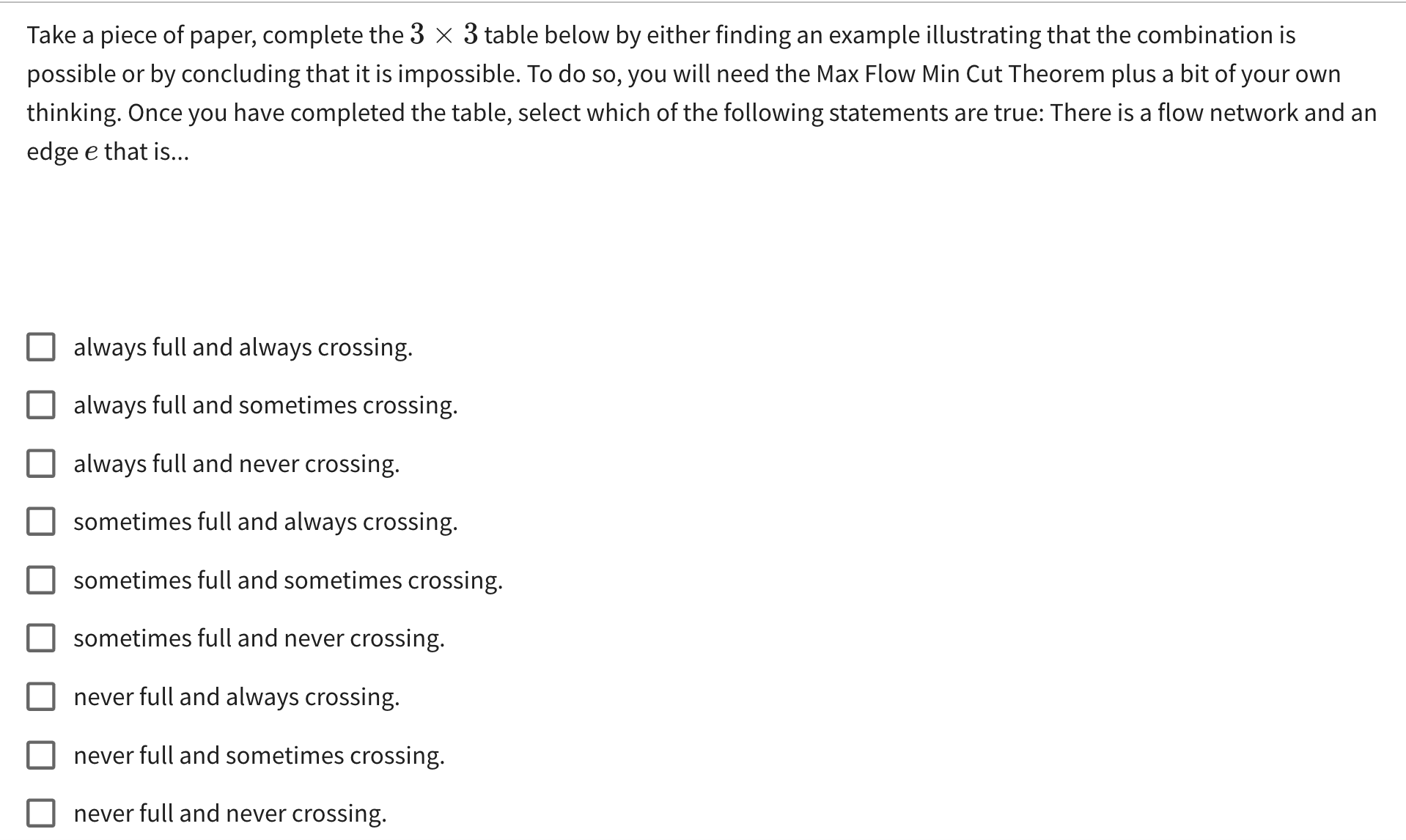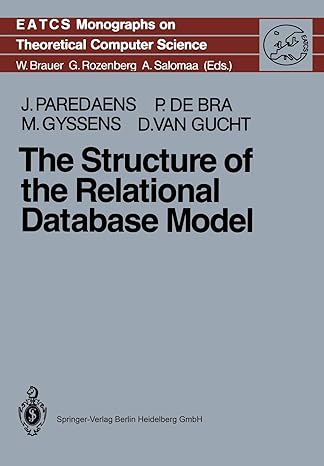Answered step by step
Verified Expert Solution
Question
1 Approved Answer
An edge e can be ( x ) always full, ( y ) sometimes full, ( z ) never full; it can be ( x
An edge can be always full, sometimes full, never full; it can be always crossing, sometimes crossing,
never crossing. So there are nine possible combinations: xx always full and always crossing, : always full and sometimes
crossing, and so on Or are there? Maybe some possibilities are impossible. Let's draw a table:Take a piece of paper, complete the table below by either finding an example illustrating that the combination is
possible or by concluding that it is impossible. To do so you will need the Max Flow Min Cut Theorem plus a bit of your own
thinking. Once you have completed the table, select which of the following statements are true: There is a flow network and an
edge that is
always full and always crossing.
always full and sometimes crossing.
always full and never crossing.
sometimes full and always crossing.
sometimes full and sometimes crossing.
sometimes full and never crossing.
never full and always crossing.
never full and sometimes crossing.
never full and never crossing.

Step by Step Solution
There are 3 Steps involved in it
Step: 1

Get Instant Access to Expert-Tailored Solutions
See step-by-step solutions with expert insights and AI powered tools for academic success
Step: 2

Step: 3

Ace Your Homework with AI
Get the answers you need in no time with our AI-driven, step-by-step assistance
Get Started


